Insects as superfood: Can you eat what you fear? DPM challenges you to do so.
- Details
- Written by Kim Kenneth Roca
-
Published: 23 June 2023
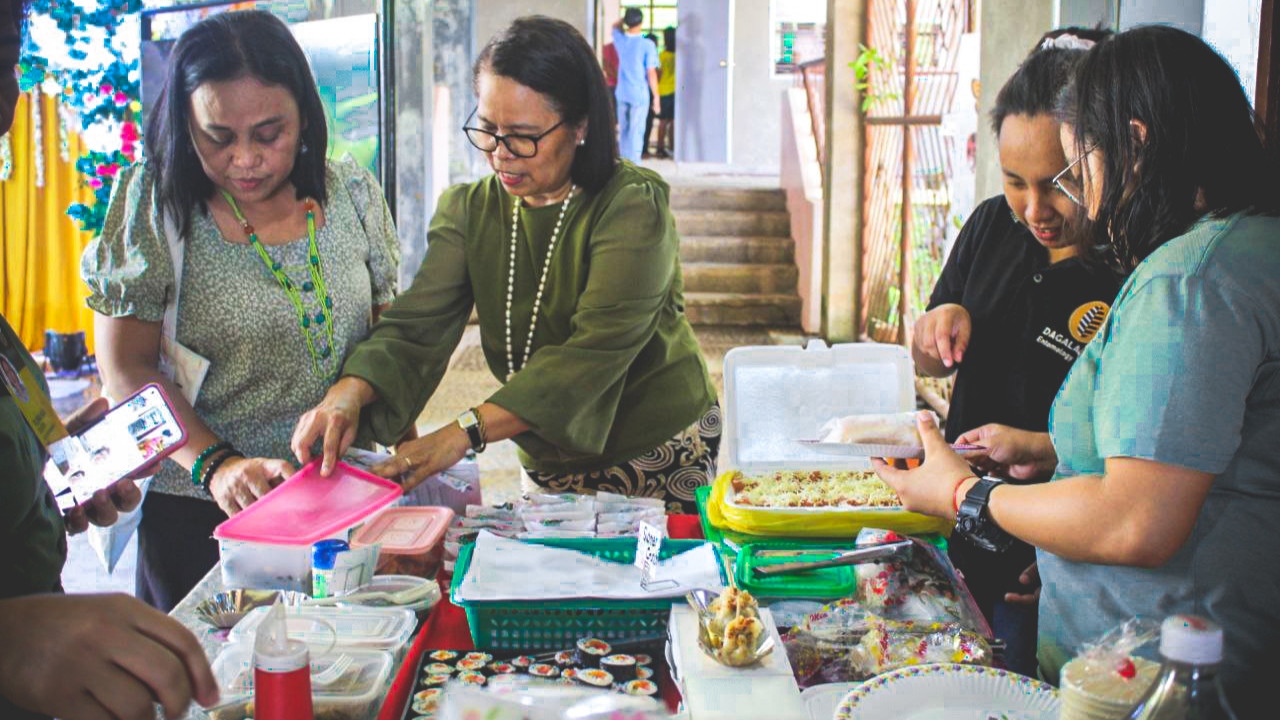
This story is about reintroducing insects as a potential nutritious food alternative for Filipinos as part of the commitment of the university to achieve the Sustainable Development Goals (SDGs), particularly on food security, economic growth, and the protection of the environment.
Do you have the guts to eat your fear? The Visayas State University’s Department of Pest Management (DPM) wants you to conquer your “entomophobia” or fear of insects by snacking on them. Yes, you read it right.
During the 3rd Industrial and Economics Entomology Culmination Exhibit, junior plant protection majors of DPM spearheaded a fair showcasing the utilization and income generation potentials of insects and their by-products, reintroducing edible insects as the “superfood of the future”.
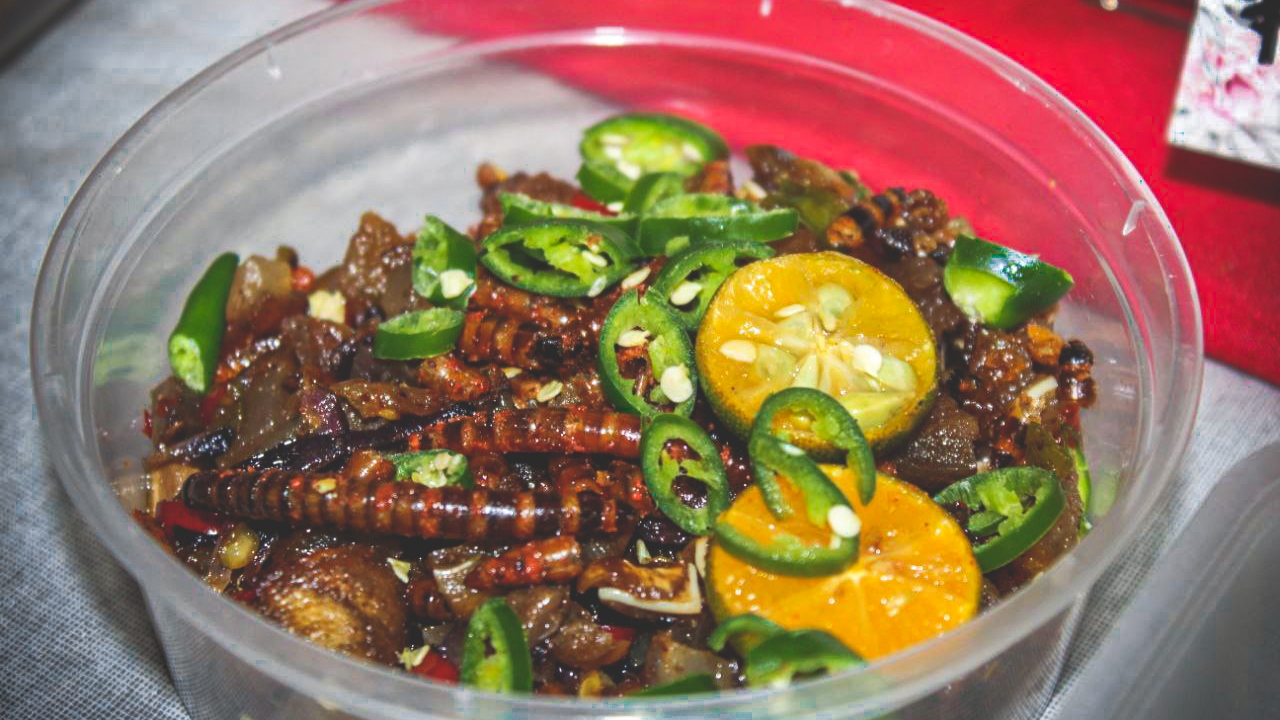
The theme ‘Towards Ento-Teknovation and Entrep-Biz’ highlighted the consumption of insects like crickets and superworms as an appetizing alternative food source and a more environmentally friendly protein option—a sustainable and eco-friendly solution to addressing food security.
Contrary to its ‘exotic’ popularity, insect consumption for its nutritional value or “entomophagy” is a common practice in most parts of the world, especially in the tropics. In Asian countries like the Philippines, these types of food are commonly served fried, barbecued, or mixed into some of the local delicacies.
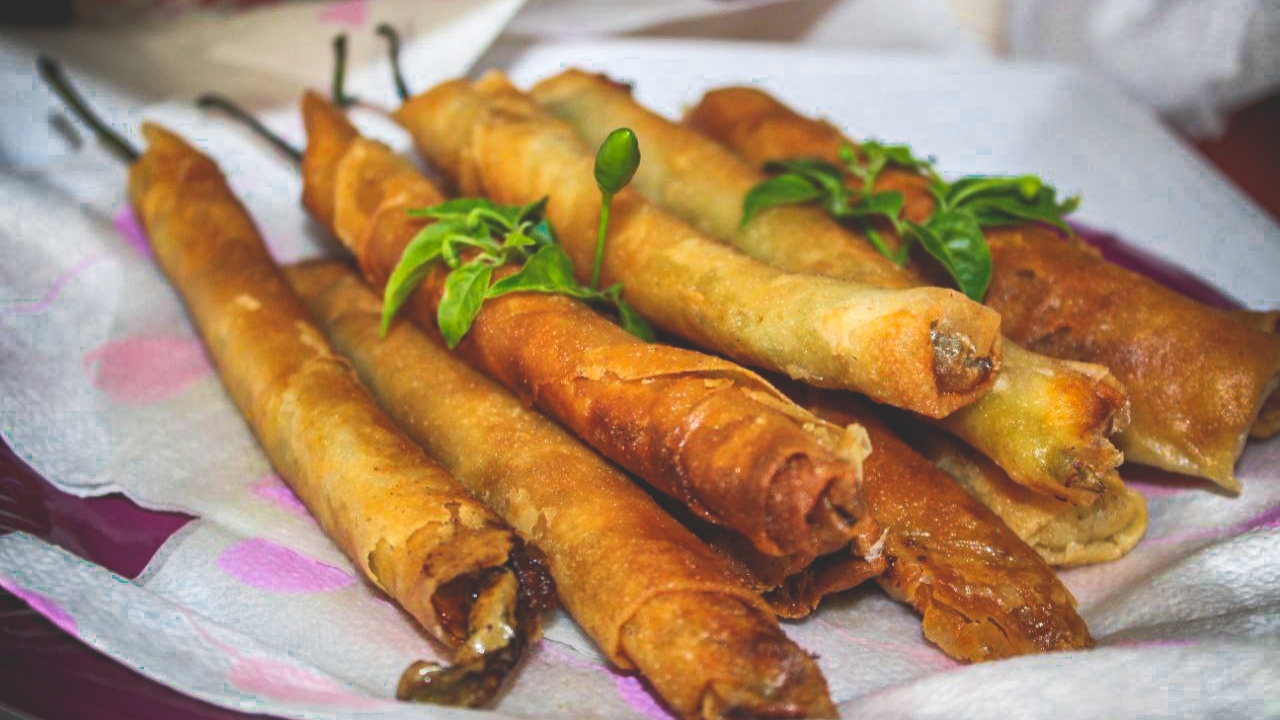
In the exhibit, popular meals and snacks such as siomai, gimbap, sisig, brownies, the fan-favorite lumpia or spring rolls, and other dishes were mixed with superworms (Zophobas morio) as the main or substitute ingredient to the recipes. Crickets and superworms have long been used by many countries as food ingredients to increase the nutritional content of different cuisines. These little crawlers, according to studies, are a good source of protein, fat, vitamins, minerals, and fiber and may benefit gut health.
The Institute of Food Technologies (IFT) based in the UK has already acknowledged insects as the “food of the future” and as a low-cost alternative to animal protein posing a lesser impact on the environment. The IFT emphasized the need for new protein sources with the eventual depletion of the meat supply in the coming years.
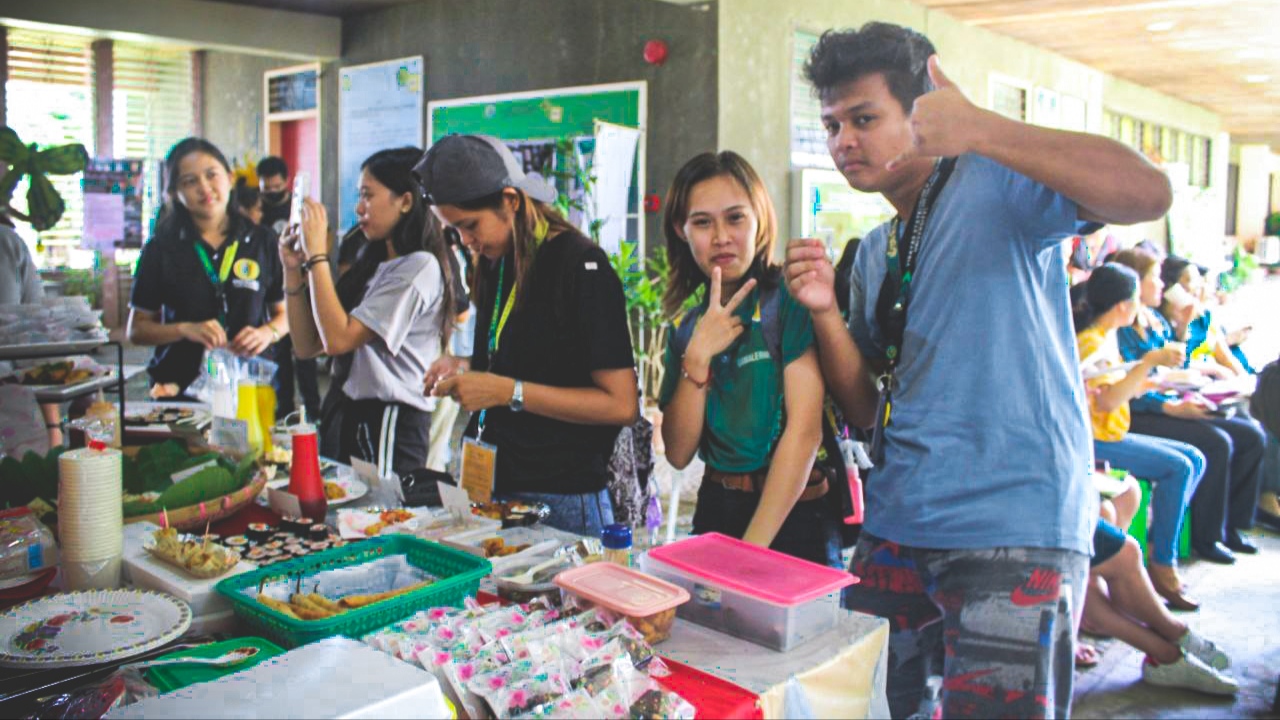
Aside from featuring the nutritional benefits of utilizing insects and insect-derived products, the exhibit also presented the environmental and economic advantages of insect farming or “entomoculture” as a lucrative enterprise. This included butterfly farming, beekeeping, silkworm cultivation, insect handicraft-making, and other beneficial use of insects like “entomotheraphy” or the use of insects and insect-derived products for preventive or therapeutic purposes.
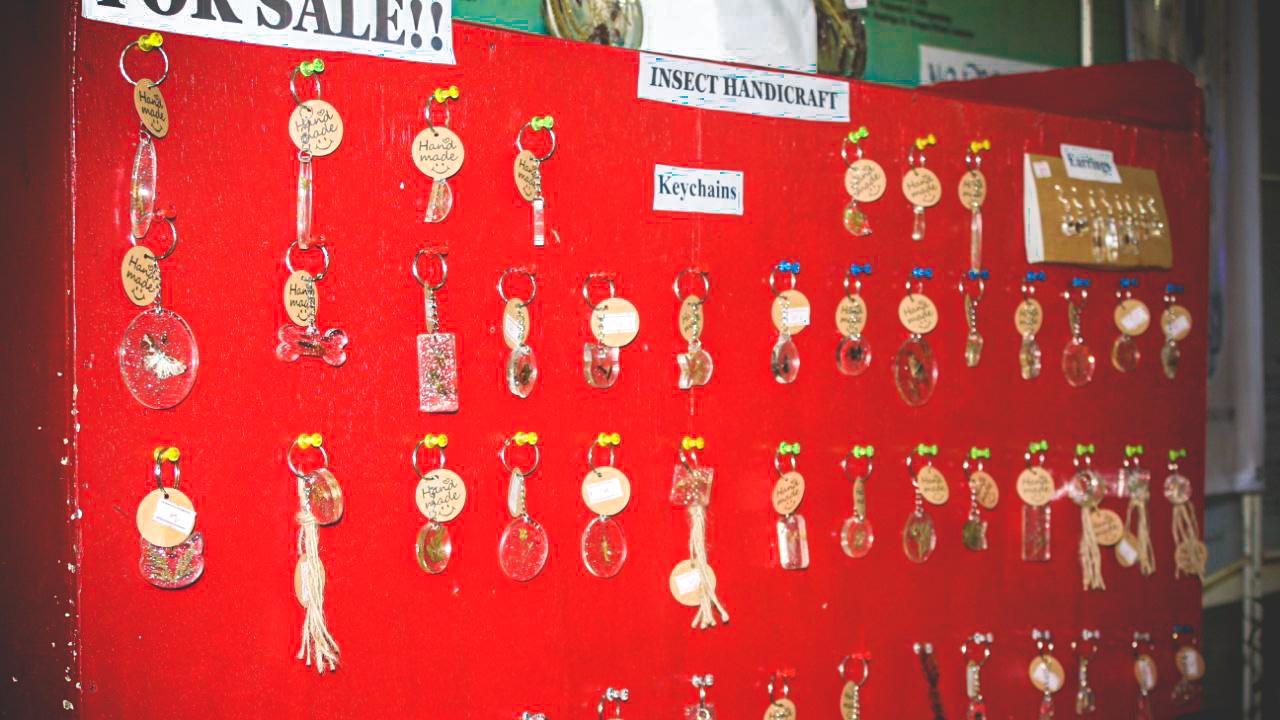
The VSU Vice-President for Research, Extension, and Innovation Dr. Maria Juliet Ceniza stressed that the exhibit does not only want to remove the stigma and normalize the consumption of edible insects but also showcase the environmental and economic significance of insect utilization.
“Entomophagy was already practiced in the Philippines long before. Even in countries like Thailand, insect consumption is very much common. By understanding the potentials of insect cultivation and consumption, we could address the Sustainable Development Goals (SDGs) including ‘No Hunger’, ‘Climate Action’, and ‘Life on Land’. It’s just a matter of awareness and reorientation for the people to realize the significance of such activity,” she explained.
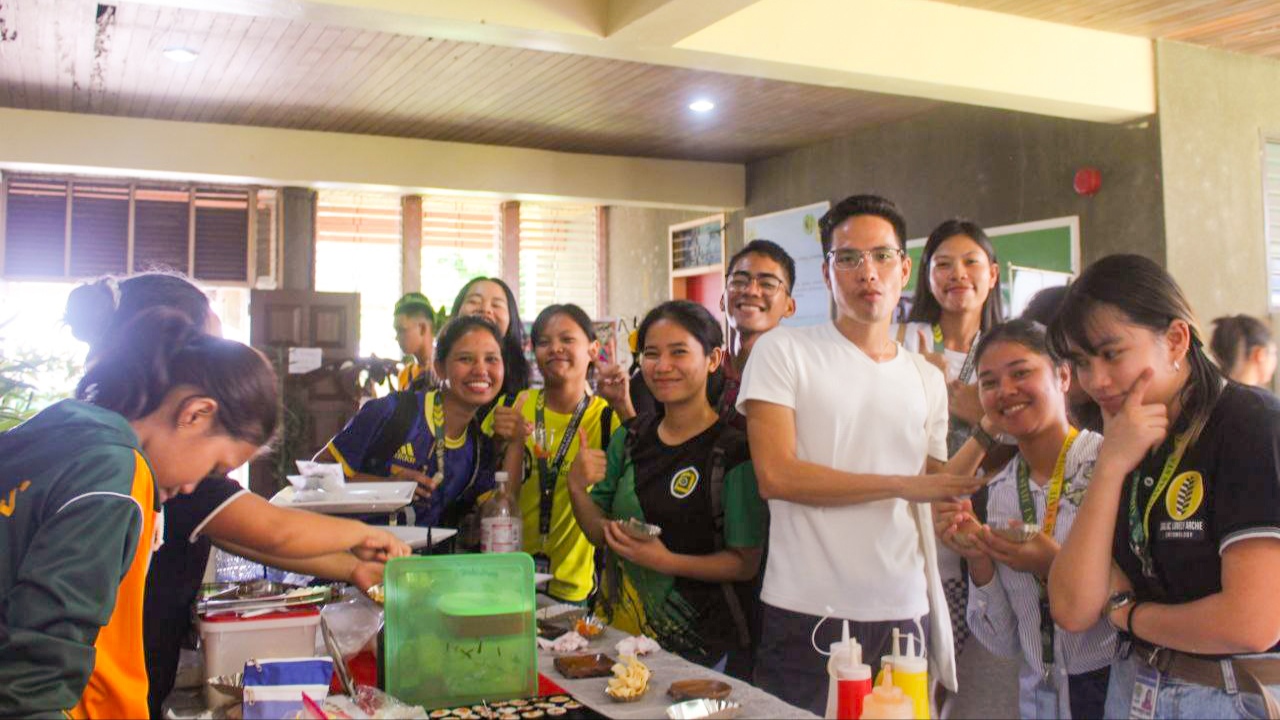
Dr. Ceniza reaffirmed the relevance of this venture in addressing global crises like food sustainability while also responding to economic and environmental development.
“At present, we have no more land for big cattle production. Insect farming could be a more sustainable answer to this. To produce protein from insects, less water and space use are required. It also produces less carbon emission as compared to livestock raising. You can make business and invest not only in food but also in eco-tourism like butterfly and bee gardening,” the Vice-President added.
The exhibit is only one of the many activities conducted by VSU to help achieve the Sustainable Development Goals or SDGs within the university through the integration of development programs into the academic curriculum, and its research and extension initiatives.
As President Edgardo Tulin mentioned during the university’s debut on the “Word Impact Ranking” in 2022, VSU is giving its full commitment to accomplishing the SDGs. He also underscored the importance of aligning the institution's initiatives with these development goals.
“The VSU administration is fully committed to improving our international standing as we pursue greater efforts in fulfilling the UN Sustainable Development Goals (SDGs). I hope that our faculty, researchers, and students are now understanding the importance of aligning our many initiatives with the SDGs. We only have until 2030 to fulfill these global goals and I believe that concentrating our collective efforts towards these directions will make VSU more relevant in addressing the many pressing needs of the times,” Dr. Tulin stated.
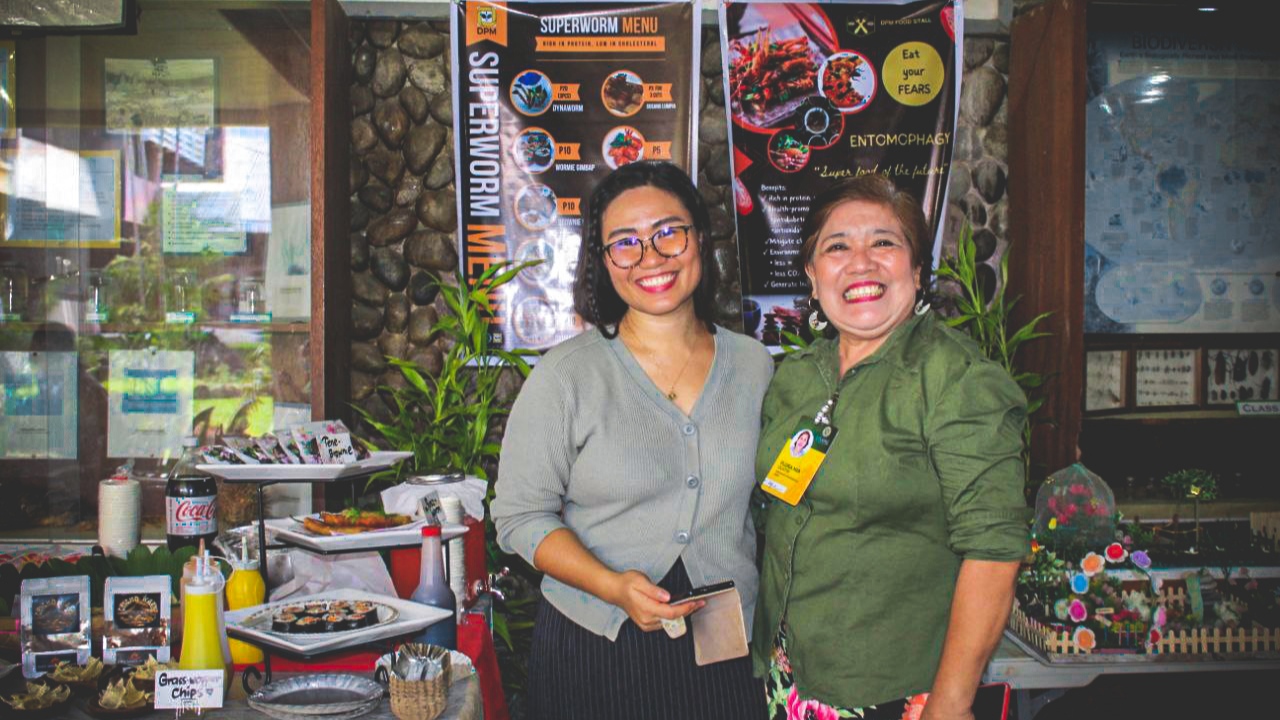
The event was held last June 07, 2023, at the VSU DPM Building and was attended by the VPREI Dr. Maria Juliet Ceniza as one of the course professors together with Dr. Beatriz Belonias, VP for Academic Affairs, Dr. Robelyn Piamonte, DPM Head, other faculties and students from the department, and guests. The exhibit was organized by the Plant Protection Majors' Association, an organization run by BS Agriculture students majoring in plant protection.
[All photos are courtesy of Jamaica A. Sumaylo]

